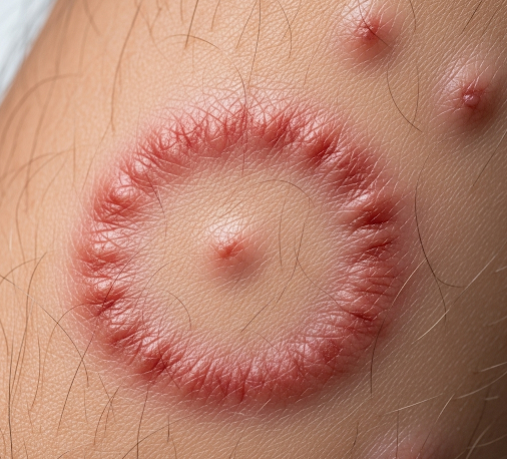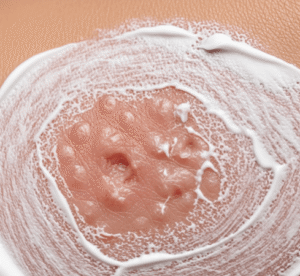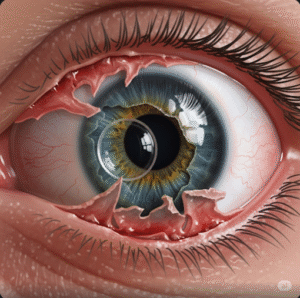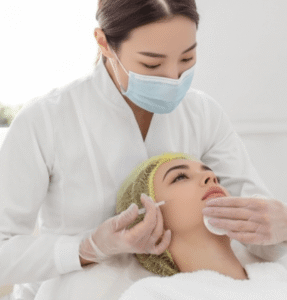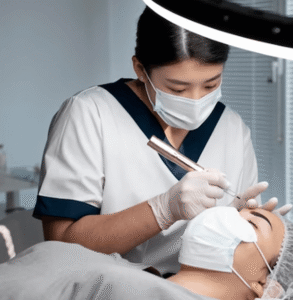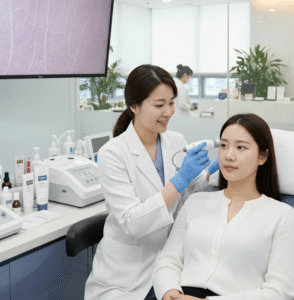Overview
Ringworm is a common fungal infection of the skin, scalp, or nails caused by dermatophyte fungi. Despite its name, it is not caused by a worm but by fungi that thrive on keratinized tissues. In Korea, dermatologists diagnose and treat ringworm effectively using antifungal medications and hygiene education to prevent spread and recurrence.
What is Ringworm?
Ringworm (also called tinea) is a contagious fungal infection that affects the outer layers of the skin, hair, or nails. It causes circular, red, scaly patches that may be itchy or inflamed. Different types of ringworm are classified based on the body part affected, such as tinea corporis (body), tinea capitis (scalp), and tinea pedis (feet).
Symptoms
- Circular or ring-shaped red patches on the skin with raised edges
- Itching and scaling
- Hair loss and scaly scalp in scalp infections
- Thickened, discolored, or brittle nails in nail infections
- Blisters or oozing in severe cases
Causes
- Infection by dermatophyte fungi such as Trichophyton, Microsporum, and Epidermophyton species
- Warm, moist environments that promote fungal growth
- Close contact with infected people, animals, or contaminated objects
Risk Factors
- Sharing personal items like towels or clothing
- Frequent sweating or damp skin
- Weakened immune system
- Living in warm and humid climates
- Contact with infected pets or livestock
Complications
- Secondary bacterial infections due to scratching
- Spread of infection to other body parts or people
- Chronic or recurrent infections if untreated
Prevention
- Maintain good personal hygiene and keep skin dry
- Avoid sharing personal items
- Wear breathable clothing and change sweaty clothes promptly
- Treat infected pets promptly
- Use antifungal powders or sprays in high-risk situations
Treatment Options in Korea
Korean dermatology clinics provide effective diagnosis and treatment for ringworm:
- Topical Antifungals: Creams, lotions, or shampoos containing clotrimazole, terbinafine, or ketoconazole for mild to moderate infections.
- Oral Antifungals: For extensive, resistant, or scalp and nail infections, medications like itraconazole or griseofulvin may be prescribed.
- Hygiene Counseling: Education on preventing spread and recurrence through lifestyle adjustments.
- Follow-Up Care: Monitoring treatment response and managing complications if any.

